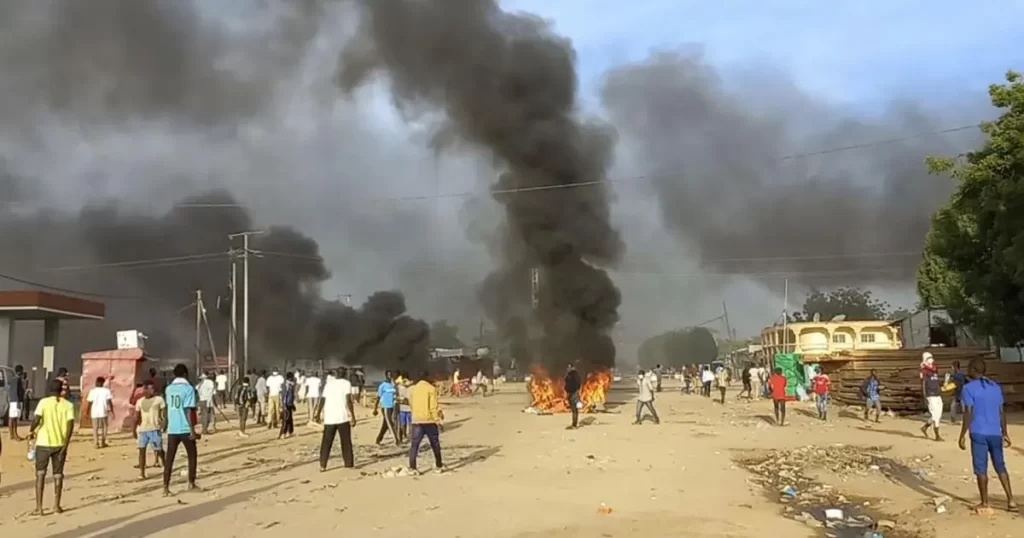Human Rights Watch (HRW) released a report Tuesday accusing Chad’s military of responsibility for the deaths of several detainees arrested during protests in October 2022. The report highlights a pattern of human rights abuses, including unlawful detentions and mistreatment at the notorious Koro Toro prison.

According to HRW, at least four people died en route to Koro Toro prison, located about 600 kilometers from N’djamena, the capital. Six others died at the prison, with the fate of another detainee unclear. The rights group suggests that the actual death toll is likely much higher.
The protests in question were against interim leader Mahamat Deby Itno’s two-year extension of power. Security forces reportedly fired live ammunition, killing at least 60 demonstrators in what was described as unprecedented unrest in Chad.
Lewis Mudge, central Africa director at Human Rights Watch, called for action, stating, “The Chadian government must act decisively to address the impunity for these abuses.” The organization urged Chadian authorities, the African Union, and UN bodies to investigate the unlawful detentions, ill-treatment at the prison, and deaths in custody.
The report details harrowing conditions during the transfer to Koro Toro, with detainees denied basic supplies and subjected to mistreatment. A former detainee, quoted anonymously, reported that “the bodies of those who died were thrown out of the trucks.”

At Koro Toro, which operates under military oversight, the day-to-day administration was allegedly delegated to prisoners with links to Boko Haram. The report describes widespread abuse, including chaining detainees with iron rods and subjecting them to prolonged solitary confinement and forced labor.
HRW has called for the closure of one of Koro Toro’s main buildings, describing it as unfit for use. The organization also urged that the remains of those who died be returned to their families for burial.
The Chadian government maintains that the 2022 protests amounted to an insurrection, justifying the detentions at Koro Toro. In a July 2023 letter to HRW, Chad’s justice minister claimed there was “no evidence relating to the violation of human rights related to (the) transfer or detention in Koro-Toro prison.”
Larry Ahmat Haroun, a Chadian activist previously jailed at Koro Toro, described it as “one of the most dangerous prisons in Chad,” citing instances of untreated bullet wounds and torture.
These revelations come as Chad, part of a region recently affected by military coups, grapples with political instability. The current president, Deby Itno, was elected on May 6 in a delayed vote marred by allegations of political opponent elimination, which authorities have denied.
As international attention focuses on Chad’s human rights record, the HRW report underscores the urgent need for transparency, accountability, and reform in the country’s justice and prison systems.


